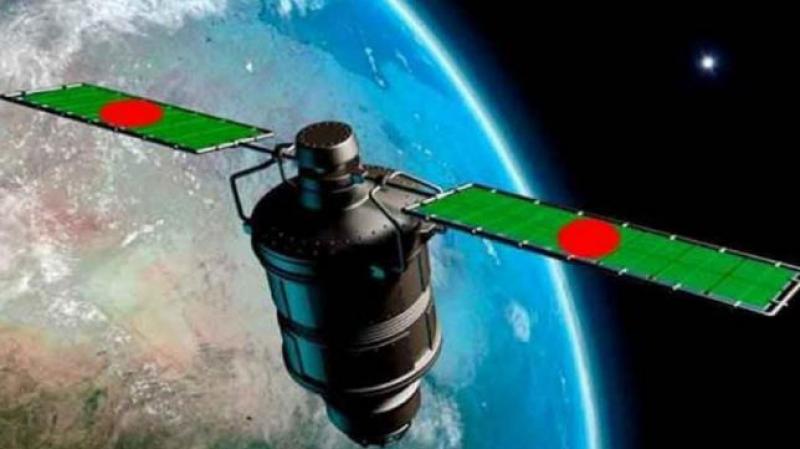 The launch of Bangladesh’s first commercial satellite, Bangabandhu-1, from Florida has been deferred again as a few more tests are being carried out at the launching ground, says the spokesperson for the Bangladesh embassy in Washington.
The launch of Bangladesh’s first commercial satellite, Bangabandhu-1, from Florida has been deferred again as a few more tests are being carried out at the launching ground, says the spokesperson for the Bangladesh embassy in Washington.
It was earlier scheduled to be launched on May 7.
Embassy spokesperson Shamim Ahmad told the Bangla Tribune that they do not expect to launch the 3.7 tonnes satellite before May 10 and the exact launch date will be known only after the test reports have been analysed.
“There’s nothing unusual about the delay and all launches have to go through several rounds of tests,” said Mr Ahmad.
He said a high level delegation is ready to depart from Dhaka as soon as they get a confirmed date from NASA officials in the US.
Mr Ahmad said the tests were being carried out on Friday and they were hoping to hear something by late Friday evening or Saturday.
Manufactured by Thales Alenia Space, a French company, the satellite is to be launched by the US firm Space Exploration Technologies Corporation or SpaceX from the Cape Canaveral Air Force Station in Florida.
It will also be a debut for SpaceX’s new ‘Block 5’ Falcon 9 rocket when it launches Bangladesh’s first geostationary communications satellite. Block 5 marks the final version of Falcon 9, and incorporates lessons learned from more than two years of launching, landing and re-launching rockets.
The first image of this upgraded rocket was released by SpaceX CEO Elon Musk earlier this week.
With a successful launch of Bangbandhu-1, Bangladesh will be catapulted into the exclusive club of satellite owning countries. It will be the 58th country with its own communication satellite.
The aspiration is to provide broadcasting and telecommunication services to rural areas and introduce direct-to-home television programming across Bangladesh and neighbouring countries. The commercial communications capabilities are expected to last for 15 years after being placed into orbit.
 National
National
41189 hour(s) 0 minute(s) ago ;
Evening 11:54 ; Saturday ; Jun 28, 2025
Bangabandhu-1 launch deferred again
Send
Brajesh Upadhyay, from Washington
Published : 23:54, May 04, 2018 | Updated : 17:15, May 05, 2018
Published : 23:54, May 04, 2018 | Updated : 17:15, May 05, 2018
0 ...0 ...
/PDN/
Topics: Top Stories
- KOICA donates medical supplies to BSMMU
- 5 more flights to take back British nationals to London
- Covid19: Rajarbagh, Mohammadpur worst affected
- Momen joins UN solidarity song over COVID-19 combat
- Covid-19: OIC to hold special meeting
- WFP begins food distribution in Cox’s Bazar
- WFP begins food distribution in Cox’s Bazar
- 290 return home to Australia
- Third charter flight for US citizens to return home
- Dhaka proposes to postpone D8 Summit
Unauthorized use of news, image, information, etc published by Bangla Tribune is punishable by copyright law. Appropriate legal steps will be taken by the management against any person or body that infringes those laws.
Bangla Tribune is one of the most revered online newspapers in Bangladesh, due to its reputation of neutral coverage and incisive analysis.
F R Tower, 8/C Panthapath, Shukrabad, Dhaka-1207 | Phone: 58151324; 58151326, Fax: 58151329 | Mob: 01730794527, 01730794528


